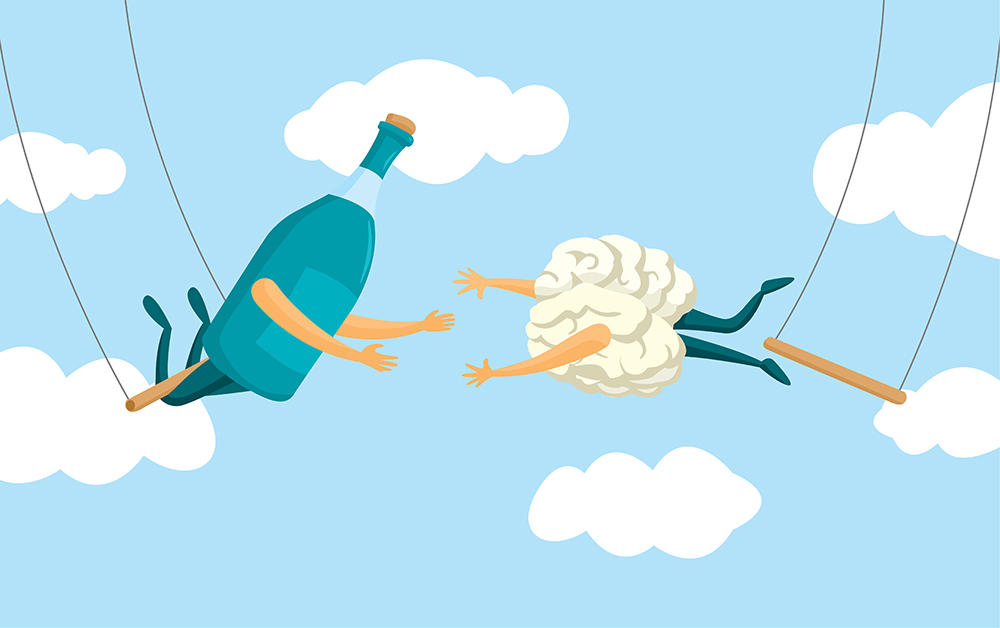part of the brain responsible for regulation of sleep, alertness, and consciousness.
“This study seems to be enlightening in a sense that it is showing that even with heavy alcohol use and without alcohol dependence, you still can see significant effects in the brain,” Kojori said. “Some regions show lower connectivity and some show lower association with the rest of the brain, such as the thalamus or precuneus that are critical for maintaining associations between the body and the brain and for maintaining consciousness. Other regions such as the cerebellum, which is known to be affected by alcohol and is critical for motor coordination, showed increased activity and connectivity as a result of chronic alcohol exposure, which we interpreted as a compensatory phenomenon.”
The researchers found that heavy drinkers had increased cerebellar connectivity but reduced brain cortical connectivity, which contributed to a decline in cognitive abilities. Heavy drinkers also reported higher levels of irritability, restlessness, alcohol desire and had weakened motor functions.
“When we looked into how overall brain activity is associated with a range of behavioral measures, it seemed that heavy drinkers had a lower association with overall brain activity and behavior. So, that might indicate that the brain is just not as efficient in regulating activity to the service of behavior, but that’s an observation we need to look into further in the future,” Kojori concluded.
















